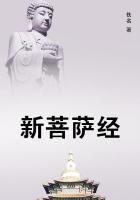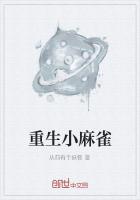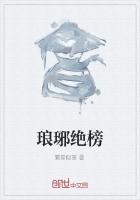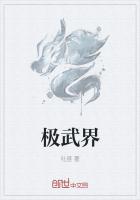The Man of Meung
There was in all this, as may have been noticed, one personage of whom, notwithstanding his precarious position, we have appeared to take but very little notice. This personage was M. Bonacieux, the respectable martyr of the political and amorous intrigues which were getting into such a tangle in this gallant and chivalric period.
The officers who had arrested him conducted him straight to the Bastille, where, all of a tremble, he was made to pass before a platoon of soldiers who were loading their muskets.
Thence, introduced into a half-subterranean gallery, he became, on the part of those who had brought him, the object of the grossest insults and the harshest treatment. The bailiffs perceived that they had not to deal with a nobleman, and they treated him like a very beggar.
At the end of half an hour, or thereabouts, an officer came to put an end to his tortures, but not to his anxiety, by giving the order to lead M. Bonacieux to the examination chamber.
Ordinarily, prisoners were questioned in their own cells, but with M. Bonacieux they did not use so many formalities.
In the evening, at the moment when he had made his mind up to lie down upon the bed, he heard steps in his corridor. These steps drew near to his cell, the door was thrown open, and the guards appeared.
“Follow me,” said an officer, who came behind the guards.
“Ah, my God, my God!” murmured the poor mercer, “now, indeed, I am lost!”
And, mechanically and without resistance, he followed the guards who came for him.
He passed along the corridor, crossed a first court, then a second part of the building. At length, at the gate of the outer court, he found a carriage surrounded by four guards on horseback. They made him get into this carriage, the officer placed himself by his side, the door was locked, and both were left in a rolling prison.
The carriage was put in motion as slowly as a funeral car. Through the padlocked gratings the prisoner could see the houses and the pavement, that was all; but, true Parisian as he was, Bonacieux could recognize every street by the mounting stones, the signs, and the lamps.
The carriage, which had been stopped for a minute, resumed its way, threaded the Rue Saint Honoré, turned the Rue des Bons Enfants, and stopped before a low door.
The door opened, two guards received Bonacieux in their arms from the officer who supported him. They carried him along an alley, up a flight of stairs, and deposited him in an antechamber.
All these movements had been effected mechanically, as far as he was concerned. He had moved along as if in a dream; he had had a glimpse of objects as though through a fog; his ears had perceived sounds without comprehending them; he might have been executed at that moment without his making a single gesture in his own defence, or his uttering a cry to implore mercy.
He therefore remained upon the bench, with his back leaning against the wall and his hands hanging down, exactly on the spot where the guards had placed him.
On looking round him, however, as he could see no threatening object, as nothing indicated that he ran any real danger, as the bench was comfortably covered with a well-stuffed cushion, as the wall was ornamented with beautiful Cordova leather, and as large red damask curtains, held back by gold fastenings, floated before the window, he perceived by degrees that his fear was exaggerated, and he began to turn his head to the right and the left, upwards and downwards.
At this movement, which nobody opposed, he gained a little courage, and ventured to draw up one leg and then the other. At length, with the help of both hands, he raised himself up upon the bench, and found himself upon his feet.
At that moment an officer of pleasant appearance opened a door, continued to exchange some words with a person in the next room, and then came up to the prisoner.
“Is your name Bonacieux?” said he.
“Yes, officer,” stammered the mercer, more dead than alive, “at your service.”
“Come in,” said the officer.
And he moved aside to let the mercer pass. The latter obeyed without reply, and entered the room, where it appeared he was expected.
It was a large, close, and stifling cabinet, the walls furnished with arms offensive and defensive, and where there was already a fire, although it was scarcely the end of September. A square table, covered with books and papers, upon which was unrolled an immense plan of the city of Rochelle, occupied the centre of the apartment.
Standing before the fireplace was a man of middle height, of a haughty, proud mien, with piercing eyes, a broad brow, and a thin face, which was made still longer by a royal (or imperial, as it is now called), surmounted by a pair of moustaches. Although this man was scarcely thirty-six or thirty-seven years of age, hair, moustaches, and royal all were growing grey. This man, though without a sword, had all the appearance of a soldier; and his buff leather boots, still slightly covered with dust, showed that he had been on horseback in the course of the day.
This man was Armand Jean Duplessis, Cardinal Richelieu.
At first sight nothing indicated the cardinal, and it was impossible for those who did not know his face to guess in whose presence they were.
“Is this Bonacieux?” asked he, after a moment of silence.
“Yes, monseigneur,” replied the officer.
“Very well. Give me those papers, and leave us.”
The officer took the papers pointed out from the table, gave them to him who asked for them, bowed to the ground, and retired.
“Do you know who carried off your wife?” said the cardinal.
“No, monseigneur.”
“You have suspicions, nevertheless?”
“Yes, monseigneur.”
“Your wife has escaped. Did you know that?”
“No, monseigneur.”
“When you went to fetch your wife from the Louvre, did you always return directly home?”
“Scarcely ever. She had business to transact with linen-drapers, to whose shops I escorted her.”
“And how many were there of these linen-drapers?”
“Two, monseigneur.”
“And where did they live?”
“One Rue de Vaugirard, the other Rue de la Harpe.”














